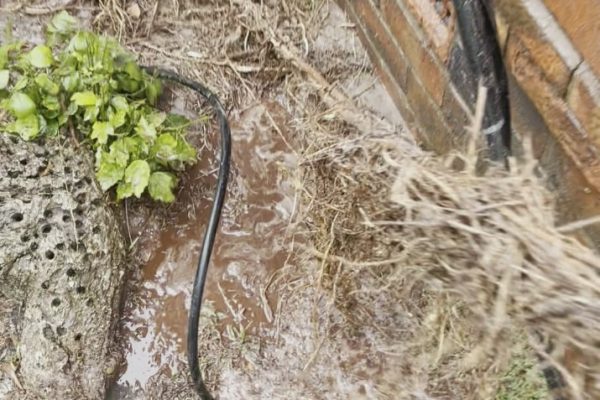Is your sink taking longer to drain than it should? Or does it stay blocked for hours before it finally drains? In that case, you’re dealing with a serious blockage. A blocked drain causes more than just inconvenience. It also leads to problems like unpleasant odours coming from the drain and bursting pipes. Even if you’re careful about causing a blockage, you might be letting some seemingly harmless stuff go down the drain. So, it’s worth taking a look at what causes blocked drains and how you can prevent them.

Common Causes of Blocked Drains
Hair
Hair is one of the most common culprits behind blocked drains, especially in bathroom sinks and showers. When hair strands accumulate over time, they tangle and form clumps that trap soap scum and other debris, leading to slow drainage or complete blockages. The problem worsens when hair mixes with grease or conditioner, making the mass stick to the pipe walls.
Leaves and Debris
Outdoor drains can become blocked by leaves, twigs, and other natural debris, particularly after storms or during autumn when trees shed their foliage. If not regularly cleared, these materials can accumulate, obstructing water flow and potentially leading to flooding around the property.
Poor Drain Installation
Improperly installed drainage systems can contribute to frequent blockages. If pipes are not aligned correctly or have insufficient slope, water flow is restricted, allowing debris to settle rather than being flushed through the system. Additionally, the use of substandard materials or incorrect pipe sizing can exacerbate drainage issues over time.
Soap
While soap itself dissolves in water, the residue it leaves behind can contribute to blockages, especially when combined with hard water. Soap scum builds up on pipe walls, gradually narrowing the passage and making it easier for other substances, like hair and dirt, to accumulate.
Oil and Grease
Cooking oil, grease, and fat are a common cause of drain blockages, particularly in kitchen sinks. These substances may appear liquid when hot but solidify upon cooling, clinging to pipe interiors and trapping food particles. Over time, this can lead to stubborn clogs that require professional intervention.
Food Scraps and Coffee Grounds
Food particles, particularly starchy or fibrous items like rice, pasta, and vegetable peels, can swell when exposed to water, leading to obstructions. Coffee grounds are another common issue, as they do not dissolve in water and can accumulate in pipes, forming a dense sludge that restricts water flow.
Tree Roots
Tree roots are a significant cause of blocked drains, particularly in older properties with aging pipework. Roots seek out moisture, and if there are even small cracks in underground pipes, they can infiltrate and expand inside, obstructing the flow of wastewater. This can lead to severe damage and costly repairs.
Wet Wipes
Despite being marketed as ‘flushable,’ wet wipes do not break down as easily as toilet paper. They remain intact in the drainage system, often catching onto pipe walls or other debris. When multiple wipes accumulate, they can form large blockages that require professional removal.
Toiletries
Flushing toiletries like sanitary pads, tampons, cotton swabs, and nappies down the toilet can lead to serious blockages. These products are designed to absorb moisture rather than disintegrate in water, meaning they can quickly expand and obstruct pipes, causing backups and potential damage.
How to Prevent Blocked Drains
Use Drain Covers
Installing drain covers or strainers in sinks, showers, and outdoor drains can help catch hair, food scraps, and debris before they enter the plumbing. Regularly cleaning these covers prevents buildup and maintains smooth water flow.
Dispose of Grease Properly
Instead of pouring oil and grease down the sink, collect it in a container and dispose of it in the trash. Alternatively, some areas offer grease recycling programs where used cooking oil can be repurposed.
Regular Pipe Maintenance
Routine drain cleaning can prevent blockages before they become serious. Flushing drains with boiling water or a mixture of baking soda and vinegar can help break down minor buildup. Scheduling professional drain inspections can also identify potential issues early.
Be Mindful of What Goes Down the Drain
Avoid flushing wet wipes, toiletries, and excessive toilet paper. In the kitchen, scrape your plate into the trash or compost bin rather than rinsing food scraps down the sink. A garbage disposal can help manage food waste, but it should not be used for hard or fibrous materials.
Trim Trees and Clear Outdoor Drains
Keeping trees and shrubs pruned away from drainage pipes can reduce the risk of root intrusion. Regularly clearing leaves and debris from gutters and outdoor drains can prevent water from pooling and causing blockages.
Ensure Proper Drain Installation
If you experience frequent drain issues, it may be worth having a professional plumber assess your drainage system. Ensuring pipes are correctly installed with proper alignment and slope can make a significant difference in preventing future blockages.
Hire Plumb Well Solutions to Clear Your Drains!
Plenty of things can lead to a blocked drain in your home. These range from kitchen waste like food scraps, coffee grinds, and grease, to bathroom waste like wet wipes, soap, and hair. In any case, you need to be careful about what goes down your drains. Taking measures to keep waste out of your kitchen and bathroom drains goes a long way in preventing blockages. It’s also a good idea to call in expert plumbers in Bayside Melbourne for a routine inspection. This is so they can clean out minor blockages before they cause extensive damage. At Plumb Well Solutions, we conduct drain inspections and clear blockages, and offer routine maintenance to keep your drains clear and draining smoothly.
